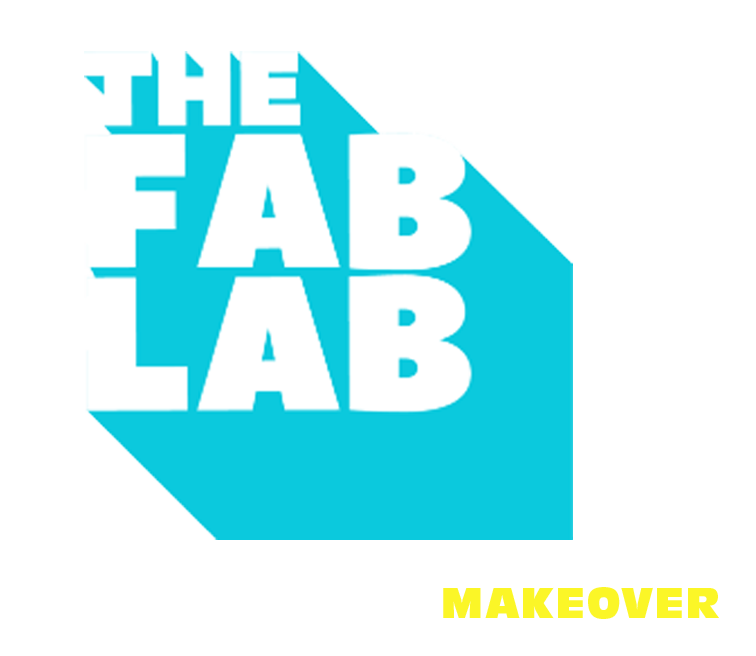Portland-filmed web series makes science fun for kids
By Samantha Swindler | The Oregonian/OregonLive
If Martha Stewart and Bill Nye created a kids show, they might come up with something like Crazy Aunt Lindsey's Fab Lab.
Wearing her signature, oversized hair bow and bursting with energy, Portland's Crazy Aunt Lindsey – aka Lindsey Murphy – leads kids on science-based projects from making lemon batteries to building bird feeders.
The Fab Lab YouTube series is about "bringing your everyday into the science world," Murphy said. Her most recent episode on the science of baking features a field trip to Blue Star Donuts, where she explains rising dough as the product of "yeast farts."
Murphy isn't a scientist. Her background is in marketing and communications, so she understands the importance of knowing your audience and the power of media images. And as a black woman leading lessons about science and math, she knows she's making an important imprint on young minds.
"(Children) need to see a lot of different faces doing science," said Danielle Lee, an African-American biology professor at Southern Illinois University Edwardsville and supporter of Murphy's work. "They need to understand that it's accessible and they can do it, and she's the perfect facilitator. Her personality is so engaging."
Murphy has always been driven. As a kid growing up in New Jersey, she was transfixed by her older sister's copies of Vogue and Harper's Bazaar. At age 12, she applied (on her own) to New York's Fashion Institute of Technology.
"Neither of my parents went to college ... so I didn't know how it worked," she said. "I was like, OK, I'm going to be Anna Wintour and my life starts now."
It didn't exactly work out that way. Murphy graduated from community college in 2005 after studying television and landed a job with MTV's new video-on-demand division. That led to jobs in marketing and advertising, but by age 25, Murphy felt burnt out.
"I just woke up one day and realized, oh my God, I hate my life," she said. "I quit, and I moved out of my fancy apartment into a friend's pool house and babysat to pay my bills."
Murphy, it turns out, was a natural with kids. She led nature walks, craft projects and cooking experiments. The children lovingly dubbed her Aunt Lindsey.
"She doesn't talk down to them," said Emily Weltman, whose 8-year-old daughter, Arianna, appeared on a recent Fab Lab episode. "She's genuinely interested in what they are saying."
About eight years ago, Murphy was moving out of the pool house and cutting back on babysitting. During her going-away party, one of the kids' parents suggested she film some of her "Aunt Lindsey projects" for YouTube. The kids were going to miss her and the videos would be a great way to stay in touch, he said.
The first few videos were titled "Doing Stuff with Crazy Aunt Lindsey," and were intended for the 11 families on Murphy's email list.
But they found an audience of thousands. Murphy's bubbly personality and the authentic reactions of her unscripted young wards gained a following.
In 2011, Murphy was invited to become a blogger with Scientific American magazine, and the videos took a more pointedly scientific bent. She renamed her show the Fabulous Laboratory, or Fab Lab for short.
Murphy moved to Portland in 2013 and continued the Fab Lab on the side. A year ago, she decided to leave her job at Wieden+Kennedy advertising agency to become Crazy Aunt Lindsey full-time.
"I was just going to do it for a year," she said. "Just go all in, and if nothing happens — because I was expecting nothing to happen — I'd have no regrets."
But plenty happened. Blue Star Donuts is the first of several sponsor partnerships she's secured for upcoming episodes. And in August, Murphy won the $10,000 top prize from PitchBlack, a live Portland event which awards funding to black entrepreneurs.
"It's important that a young, black woman is the face of science and technology in a day and age where you don't see that portrayed very often," said PitchBlack organizer Stephen Green. "When people step back and think about who are the ones historically telling stories to our kids, it's generally an older white dude. Bill Nye the Science Guy. Mr. Rogers. So, here she is saying, 'They did a great job, and now I'm going to put some swagger on it.'"
The National Science Foundation, a federal agency, reports that white and Asian men represent about 34 percent of the U.S. working-age population but hold 63 percent of the country's science and engineering jobs.
"I've had people introduce me in professional settings where we're all at the same professional meeting and ask me how I got there," Lee said. "That still happens. 'How did you get here? Why are you here?' Now, imagine that happening to undergraduate students who are just getting on track, or high school students who want to shadow someone in a lab."
And that's why Murphy's show is so important. When she considered giving up on the Fab Lab a few years ago, Lee encouraged her to keep going and crowdfund the money necessary to produce another season of episodes. She raised $2,000 more than her $10,000 goal.
"I love that she interacts with a diverse cast of children who all equally look up to her with glee in their eyes," Lee said. "They don't have any problem accepting her as their teacher, as their knowledge facilitator, and I think that's a really important soft skill. So when they show up in my college classroom 10 years later, and I'm at the front of the class, they're not asking me who's the real professor, because that happens."
